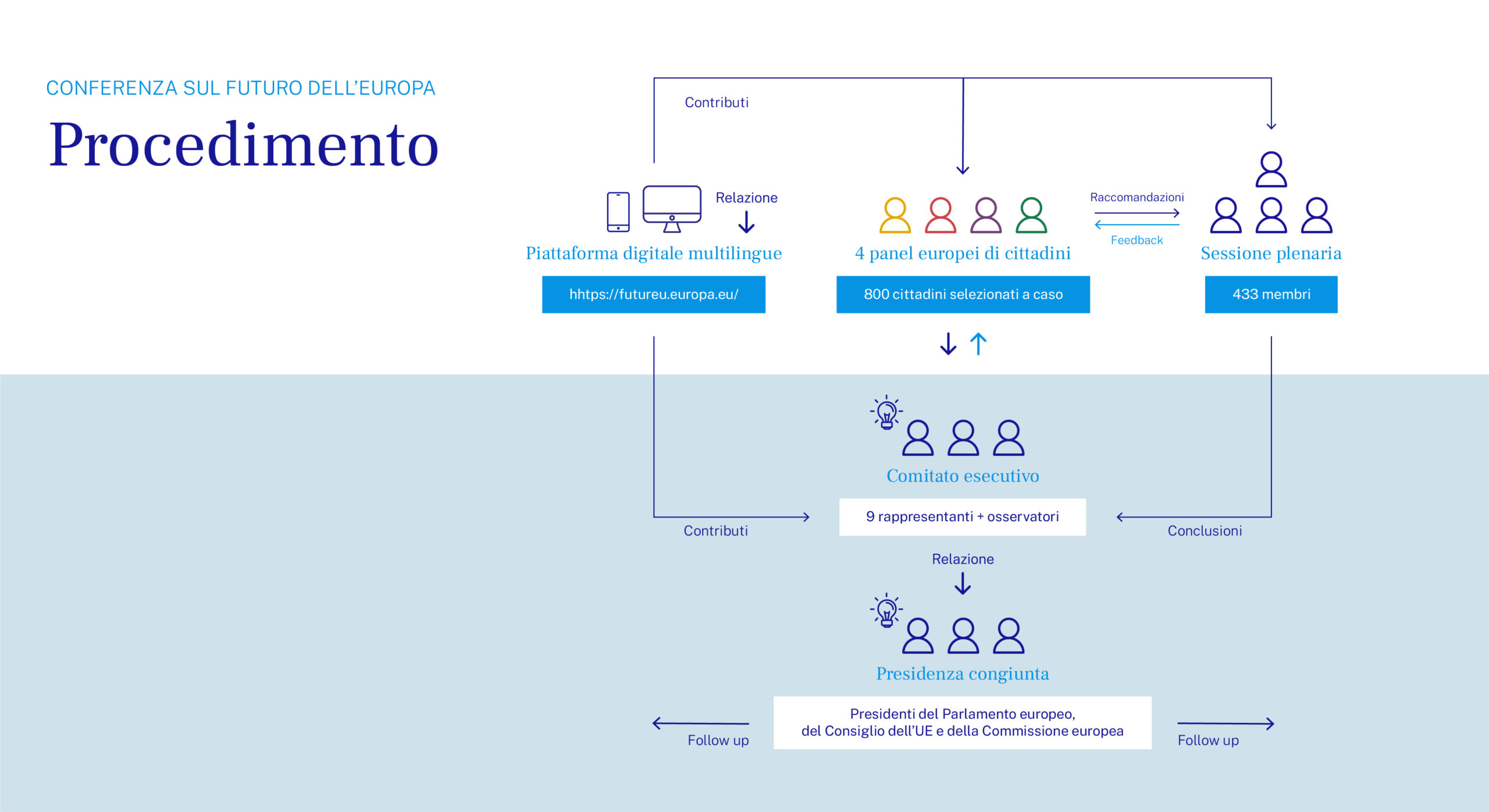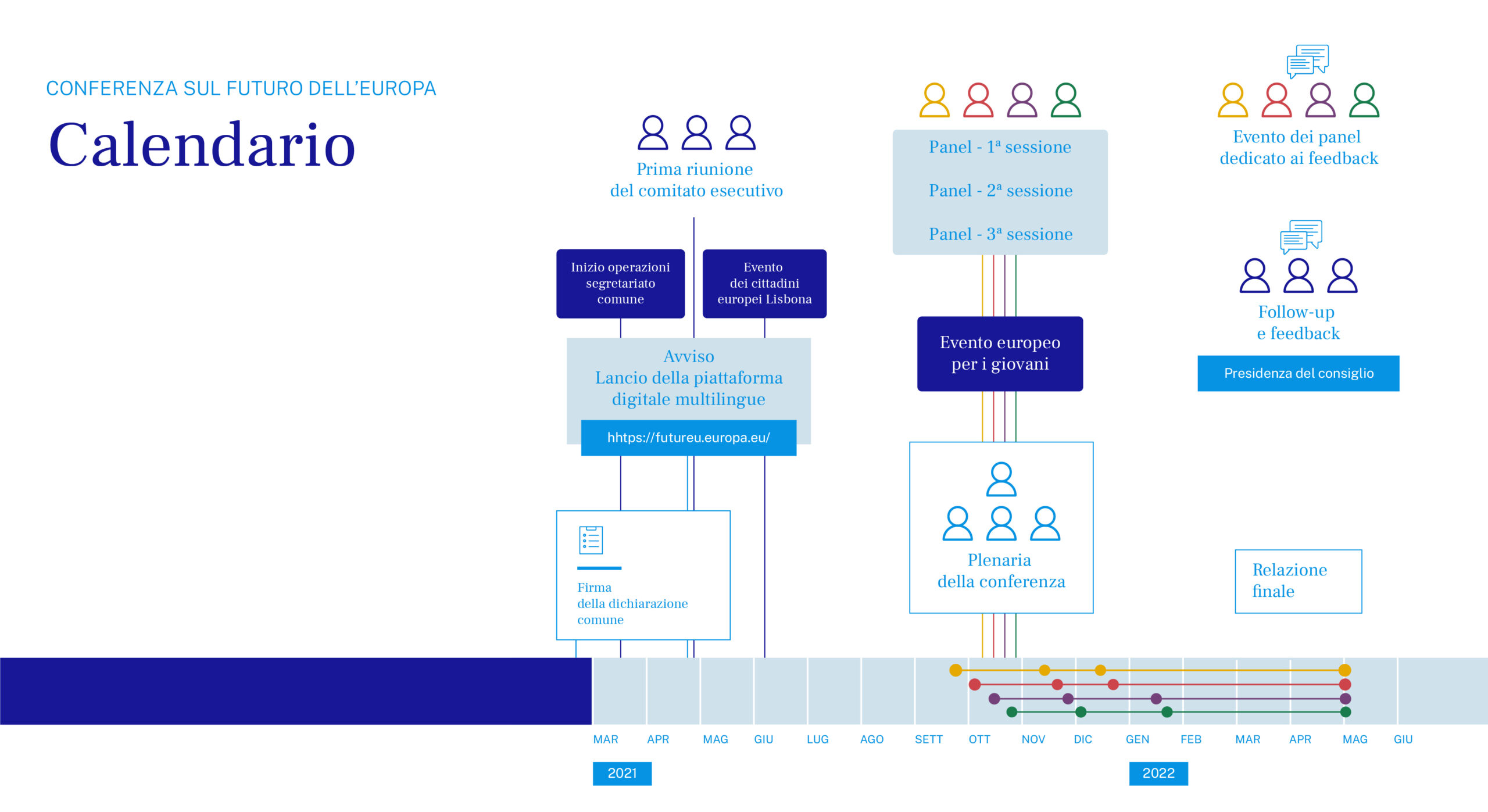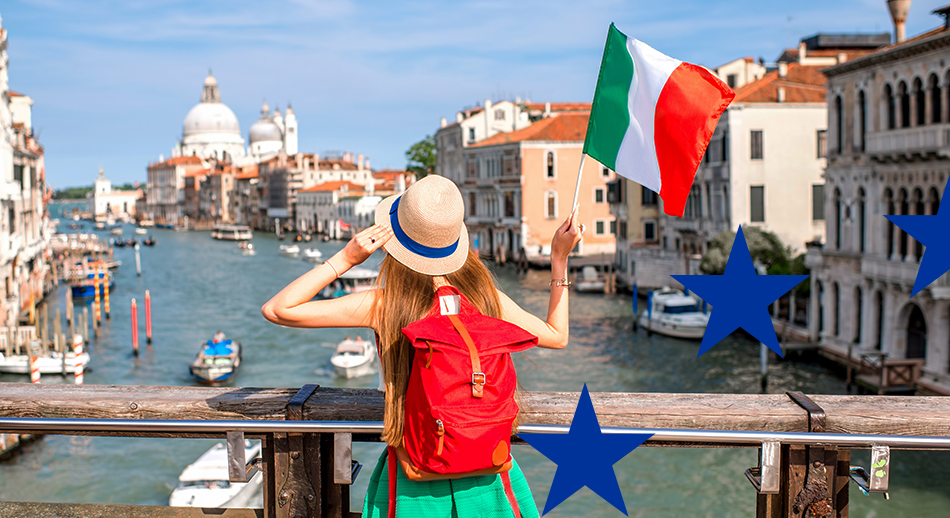The Conference on the Future of Europe: a new opportunity for Europe’s voice to be heard.
One’s voice in Europe
The EU institutions have always been attentive to the voice of the people in setting the Union’s priorities, strategies and policies. Direct contact with EU institutions is possible through the Europe Direct network(1|2). There are agencies that approach citizens for participation in community programs. There are European Commission representations and European Parliament liaison offices active in each country. There is a special system for “having our say” at the European Commission on a wide range of issues. In short, there is no shortage of channels for dialogue and it is a particularly interesting opportunity for those, like EU project designers, who deal with issues of EU relevance on a daily basis. However, the European Union is a complex reality going through complex times, fraught with new challenges for institutions and citizens. Today more than ever, bringing institutions and citizens closer together and renewing the tools for democratic participation is a strategic challenge for the future of the Union. In line with this strategic need, the Conference on the Future of Europe was launched in March this year: a new, wide-ranging initiative involving all aspects related to the future of the Union and open to all citizens. It materialized in April in the unveiling of a dedicated digital platform and in June in a first plenary conference (the next one is scheduled for October).
What is it all about?
The Conference on the Future of Europe offers European citizens a unique, timely opportunity to think about Europe’s challenges and priorities. Anyone, regardless of background or activity, can use this tool to reflect on the future of the European Union they would like. The European Parliament, the Council and the European Commission pledged to listen to the voice of Europeans and follow up, within their respective competencies, on the recommendations received. By spring 2022, the conference is expected to reach conclusions and provide guidance on the future of Europe.
Its operation and timing are well summarized in these infographics.


How to participate?
The starting point is the online platform on the Future of Europe, which concisely and comprehensively contains all the information needed to consult and participate in the conference, in all the languages of the Union. Ten main themes are proposed: Climate change and the environment, Health, A Stronger Economy, Social Justice and Employment, The EU in the World, Values and Rights, Rule of Law, Security, Digital Transformation, European Democracy, Migration, Education, Culture, Youth and Sports, and More Ideas (for anything that does not fall under the above themes).
As part of the conference, it is possible:
- Consult all the ideas being discussed and propose new ones, following a special registration process
- Participate in and organize events to discuss and share concrete ideas and solutions for the future of Europe, with the assistance of appropriate guides and decentralized EU bodies in your country;
- Follow the work of the (randomly selected and representative) citizen panels and plenary sessions of the conference, charged with collecting, discussing and drawing conclusions from the input gathered;
- View all videos related to the Future of Europe Conference through the European Commission’s audiovisual portal.
We recommend, in this regard, a video that briefly explains the initiative and how to participate in the conference.
An important debate
The EU institutions pledged to follow up on the conclusions of the conference, scheduled for spring 2022. Let’s keep up to date and follow the debate: this exercise will bring further renewal in EU policies and priorities, and with it, new blood for our projects.




